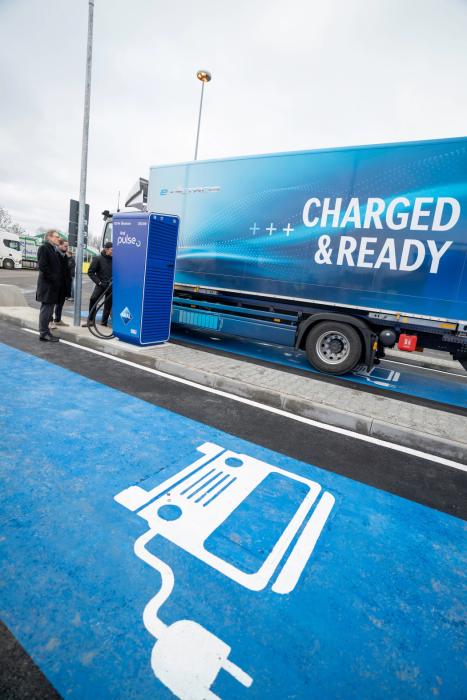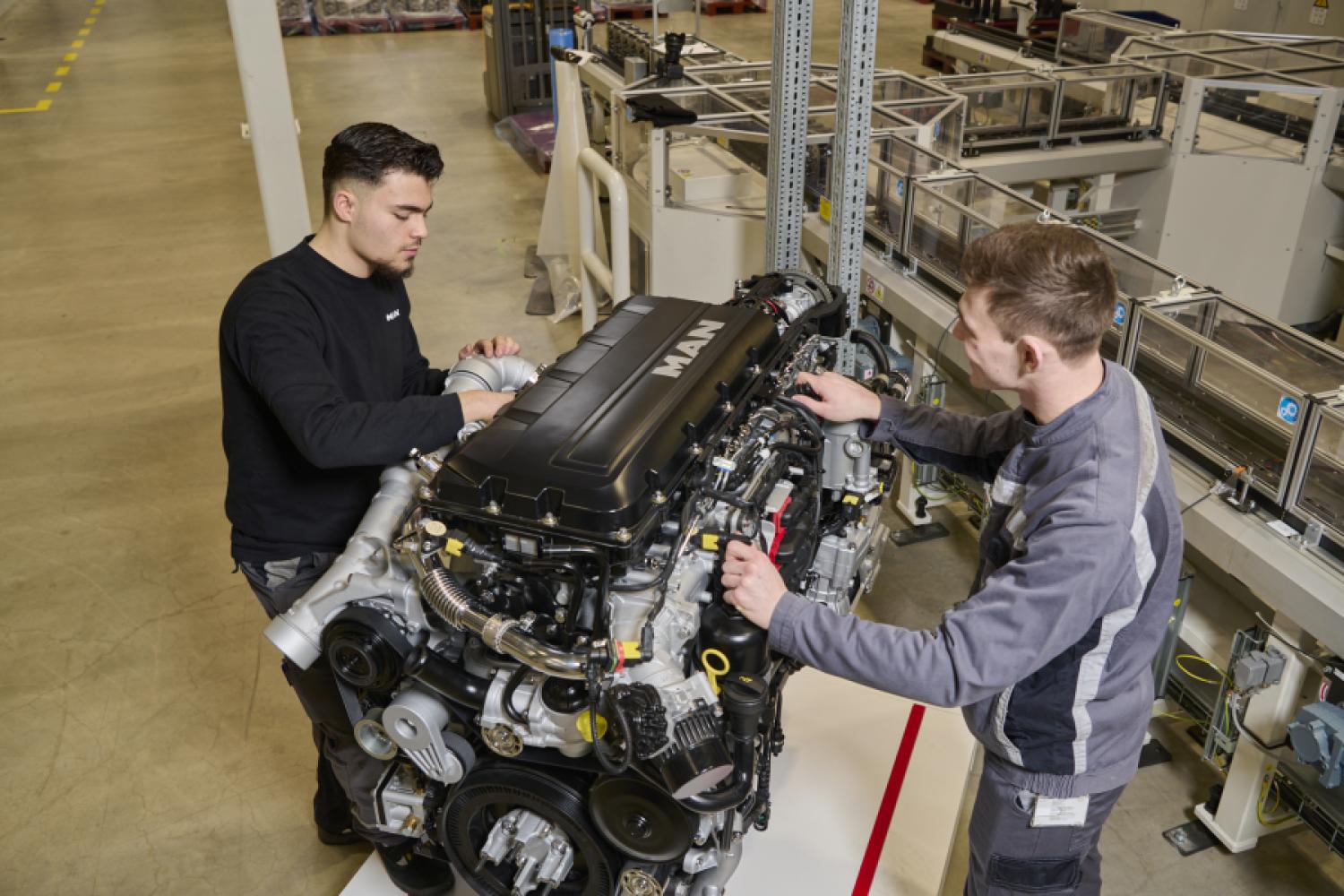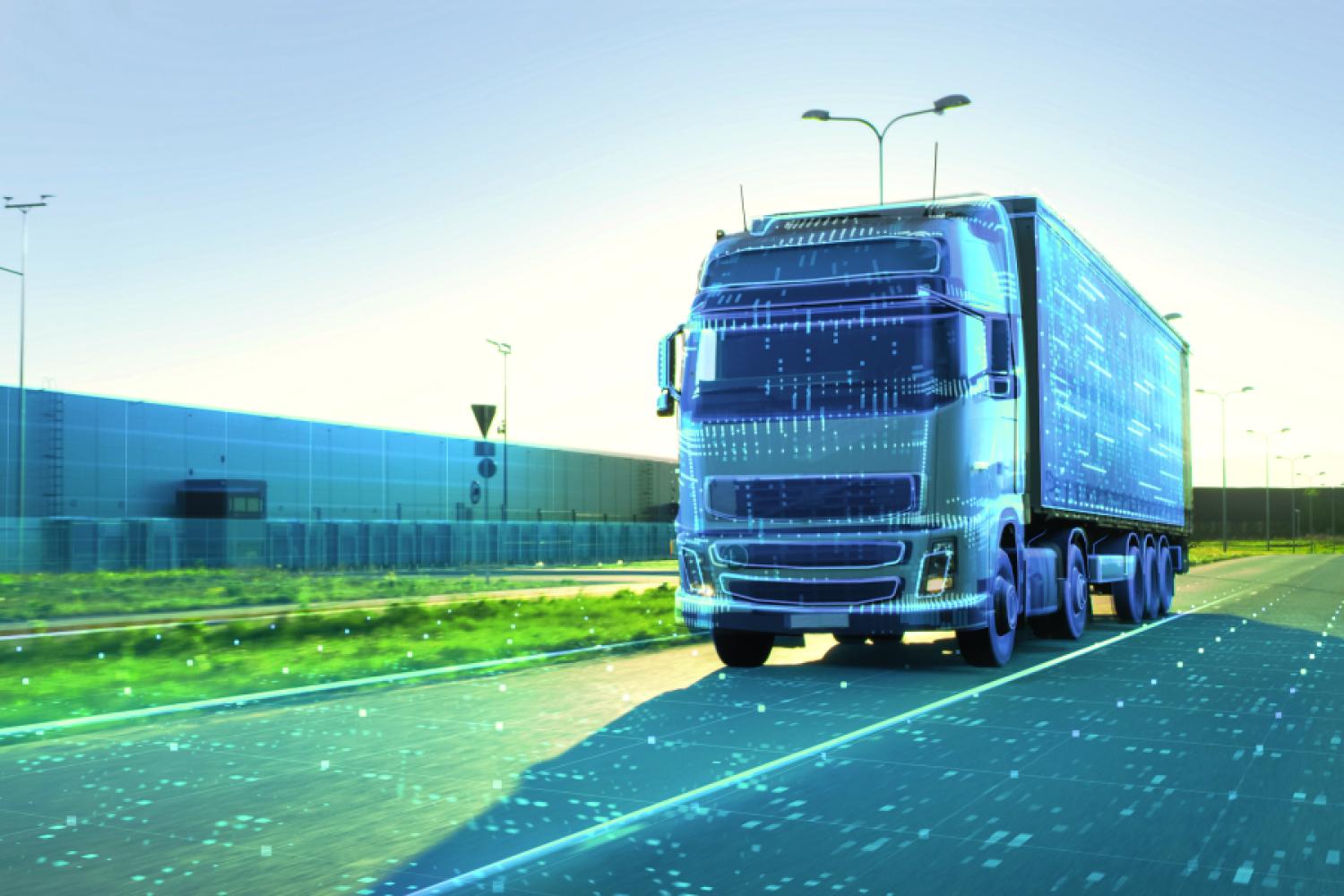A new study by Sennder shows that electric trucks in Germany could economically compete with diesel models as early as 2025. This is based on 1.3 million calculated scenarios from real vehicle operations.
The results of their extensive study on the cost-effectiveness of electric trucks were presented by the digital freight forwarder at this year's Transport Logistic in Munich. During a press breakfast, the company presented an analysis of more than 1.3 million cost scenarios based on real driving data from European markets. The study provides insights into the conditions under which heavy electric trucks can economically compete with diesel vehicles.
The focus
is on how political frameworks, energy prices, and technological developments affect the operating costs of commercial vehicles. The study gains particular relevance against the backdrop of upcoming changes to toll rates, CO2 pricing, and increasing pressure to decarbonize freight transport.
Germany particularly advanced in transition, according to study
According to Sennder’s calculations, Germany is the first major European market where electric trucks could be economically competitive as early as 2025.
"The results brought some interesting and new insights, especially regarding the German market," said Christoffer Haldemar, Chief Commercial Officer at Sennder. "In our scenarios for 2025, Germany is the only major European market
where electric trucks are already competitive."
Sennder stated that the study shows a cost parity between electric and diesel trucks will be achieved in many European countries by 2030. In some cases, there might even be savings in favor of electric vehicles. According to the study, the cost-effectiveness strongly depends on the electricity price. Political incentives accelerate the transition but are not mandatory.
"Electric drives will also be the future for heavy-duty trucks. Not only because they will be mandatory but also because they are economically superior," said Graham Major-Ex, Senior Director of Green Business and eMobility at Sennder.
He particularly pointed to
advances in battery technology and more affordable storage solutions as driving forces.
Strategic guidance for transport companies
According to Sennder, the analysis provides concrete guidance for transport companies on how to strategically adjust their networks and supply chains. The white paper on the study offers a detailed insight into the results and aims to serve as a guide for future investments in fleet management, according to Haldemar.
The results are based on assumptions that consider realistic operational scenarios. Factors taken into account include toll costs, energy prices, CO2 costs, maintenance effort, battery costs, and vehicle range. Sennder provides the full study upon request.






